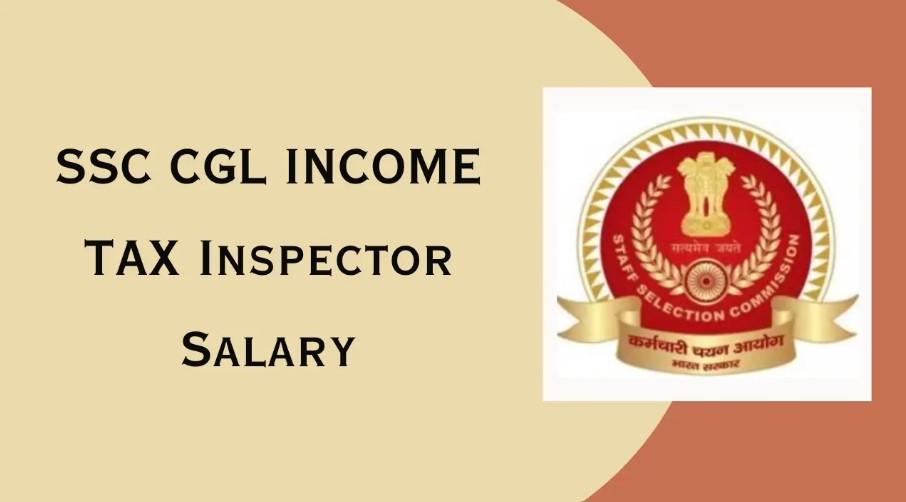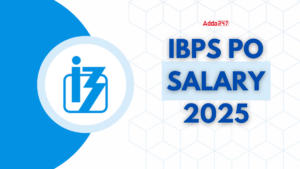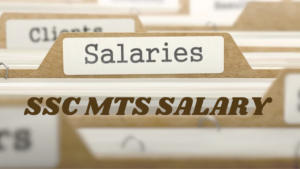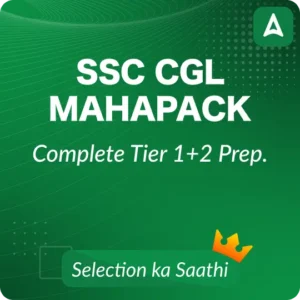Table of Contents
The SSC CGL exam is held annually to fill positions in the CBI, including those of Sub Inspector in the CBI, Income Tax Inspector, Preventive Officer, and Central Excise Inspector.
The SSC CGL Income Tax Inspector role is a prestigious Group B position in the Central Board of Direct Taxes and a well-known job that is obtained through the SSC CGL Exam.
The main agency in charge of tax monitoring and collection is the Department of Income Taxes. The SSC CGL Income Tax Inspector salary is discussed in detail in this article, which also highlights the opportunity for financial improvement in this prestigious role and gives a general summary of the pay scale.
SSC CGL Income Tax Inspector Salary
The Tax Inspector position has several appealing features, one of which is its good salary, which often draws in candidates. Additional perks that improve the salary and appeal of the work include a range of allowances.
Based on the pay scale, the base salary varies from Rs. 44,900 to Rs. 1,42,900 every month as they receive ₹4,600 in grade pay annually along with various allowances and additional advantages, as they work for the government, income tax inspectors are also eligible for supplementary benefits including pensions and health care.
SSC CGL Income Tax Inspector Salary Structure
In 2024, the salary of the SSC CGL Income-Tax Inspector will be determined by the 7th Pay Commission. Approximately Rs 44,900 is the base salary of an SSC CGL Income Tax Inspector. For example, an income tax inspector’s take-home compensation could be anything between Rs 58,956 and Rs 69,396 each month. The table below displays the salary information for SSC CGL Income Tax Inspectors for 2024.
| SSC CGL Income Tax Inspector Salary Highlights | |
| Pay Level | Pay Level 7(From INR 44,900 to INR 1,42,900) |
| Grade Pay | INR 4600 |
| Basic Pay | INR 44,900 |
Note: Learn about the SSC CGL Salary for other posts
SSC CGL Income Tax Inspector Salary Slip
The various components and pay scales for an Income Tax Inspector can change depending on the candidate’s experience level and the location of the job. The following aspects provide a summary of the components of an income tax inspector’s salary:
- Basic Salary: An employee’s basic salary is the net amount they receive before any deductions or allowances. Usually, it is decided using the salary scale that is linked to the job.
- Grade Pay: Government personnel receives grade pay, which is an additional sum determined by their pay scale grade or level. It varies according to the role and may have an impact on the total pay.
- Various Allowances: Income Tax Inspectors are qualified for many benefits, including medical, house rent, transportation, and dearness allowances (DA, HRA, and TA). These stipends are meant to help with living, housing, transportation, and medical costs.
- Some Deductions: To determine the net salary, some deductions are deducted from the gross compensation, including income tax, provident fund, and other relevant deductions.
- Gross salary: An employee’s gross salary is their total earnings before any deductions are made.
SSC CGL Income Tax Inspector Perks and Allowances
Now that you know about the SSC CGL Income Tax Inspector 2024 salary range, let us explain some of the advantages that are included in addition to pay. While on duty, an income tax inspector is entitled to numerous perks and benefits, including
- Central Government Health Scheme: For those employed by the government, CGHS is a unique health program. Wellness Centers and polyclinics operating under the systems of medicine of Allopathy, Ayurveda, Yoga, Unani, Siddha, and Homeopathy offer medical services.
- Transport Allowance: The Government of India pays employees a certain amount for work-related travel.
- HRA: The GoI provides a portion of the pay known as the House Rent Allowance (HRA) to cover the costs of renting housing.
- Pensions: These are recurring payments given by the government to those who have reached or exceeded the statutory retirement age, as well as to some widows and handicapped individuals.
- The CGEGIS, or Central Government Employees Group Insurance Scheme: The Central Government offers two advantages under this scheme- insurance protection to support their family and a portion of the money to supplement their retirement savings.
- Dearness Allowance: This portion of pay, which is equivalent to a set percentage of base pay, reduces the impact of inflation.
To learn more about the SSC CGL Income Tax Inspector Benefits and Allowances, candidates can view the table below:
| Income Tax Inspector Benefits and Allowances Overview | |||
|---|---|---|---|
| Allowances | X City (INR) | Y City (INR) | Z City (INR) |
| Transport Allowance (TA) | 3600 | 1800 | 1800 |
| Dearness Allowance (DA) | 7,633 | 7,633 | 7,633 |
| House Rent Allowance (HRA) | 10,776 | 7,184 | 3,592 |
| DA on TA | 612 | 306 | 306 |
| Petrol Allowance | 3,000 | 3,000 | 3,000 |
| Mobile Bill Allowance (Limited) | As per norms | As per norms | As per norms |
| Central Govt. Employees Group Insurance Scheme | 30 | 30 | 30 |
| Central Govt. Health Scheme (CGHS) | 350 | 350 | 350 |
| NPS Deduction 10% (Basic + DA) | 5,253 | 5,253 | 5,253 |
| Basic Pay | 44,900 | 44,900 | 44,900 |
| Gross Earnings | 67,521 | 63,929 | 60,337 |
| Govt. Contribution | 7,355 | 7,355 | 7,355 |
| Total Deductions | 5,633 | 5,633 | 5,633 |
| Net Earnings | 61,888 | 58,296 | 54,704 |
SSC CGL Income Tax Inspector Job Profile and Responsibility
The job profile of an SSC CGL Income Tax Inspector includes a variety of duties about the assessment and enforcement of income taxes. Strong knowledge of tax regulations, analytical abilities, and the capacity to work both independently and collaboratively are all essential for the position of income tax inspector. It provides an exciting and demanding profession in tax administration. A summary of the job profile is provided below:
- Tax Assessment: Income Tax Inspectors are in charge of evaluating and confirming the individual and corporate income tax returns that have been filed. They audit financial records, check that tax laws and regulations are being followed, and analyze financial documentation.
- Verification and Investigation: Income Tax Inspectors look for instances of fraudulent activity or tax avoidance. They collect data, examine financial activities, and confirm that income statements are accurate.
- Field Visits: To verify correct tax compliance, inspectors may need to visit businesses to collect data, speak with taxpayers, and examine their facilities.
- Data analysis: To find anomalies or disparities that can point to tax evasion, they examine financial data, such as income statements, balance sheets, and bank accounts.
- Reporting and Documentation: Income Tax Inspectors compile comprehensive reports and records under the conclusions of their inquiries. They keep precise records of cases, supporting documentation, and decisions.
- Legal Action: Inspectors may be involved in filing lawsuits and provide support in tax-related court matters where tax evasion or non-compliance is discovered.
- Tax Responsibility: Income Tax Inspectors provide aid to taxpayers in comprehending and meeting their tax responsibilities. They could respond to questions, offer advice, and instruct people and companies on tax laws and regulations.
- Cooperation: To exchange information, plan investigations, and guarantee efficient tax enforcement, inspectors work in tandem with other governmental organizations, including the Enforcement Directorate (ED) and the Central Board of Direct Taxes (CBDT).
Career Growth and Promotions
Those who pursue careers in income tax have the opportunity to advance professionally, take on more responsibility, and help ensure that the tax system is administered effectively.
Income tax inspectors have excellent opportunities for advancement within their careers. Recruits may advance to the position of Assistant Commissioner of IT after serving for 10–11 years as an IT Inspector, and to Deputy Commissioner of IT after serving for 4–5 years as an Assistant Commissioner.
Deputy Commissioners shall subsequently advance to the position of Joint Commissioner of IT and, ultimately, to Additional Commissioner of IT.
| Career Growth | |||
|---|---|---|---|
| Promotion Level | Designation | Experience Required | Salary Range (Approx.) |
| Entry Level | Income Tax Inspector | 0 Years | ₹44,900 – ₹1,42,400/month |
| Level 1 | Income Tax Officer | 5-6 Years | ₹47,600 – ₹1,51,100/month |
| Level 2 | Assistant Commissioner | 8-9 Years | ₹56,100 – ₹1,77,500/month |
| Level 3 | Deputy Commissioner | 4-5 Years | ₹67,700 – ₹2,08,700/month |
| Level 4 | Joint Commissioner | 4-5 Years | ₹78,800 – ₹2,09,200/month |
| Level 5 | Additional Commissioner | 4-5 Years | ₹1,18,500 – ₹2,14,100/month |
| Highest Level | Commissioner of Income Tax | 4-5 Years | ₹1,44,200 – ₹2,18,200/month |



 IBPS PO Salary 2025, In Hand Salary, All...
IBPS PO Salary 2025, In Hand Salary, All...
 UPSSSC Junior Assistant Salary 2025, In ...
UPSSSC Junior Assistant Salary 2025, In ...
 SSC MTS Salary 2025, In Hand Salary, Job...
SSC MTS Salary 2025, In Hand Salary, Job...



